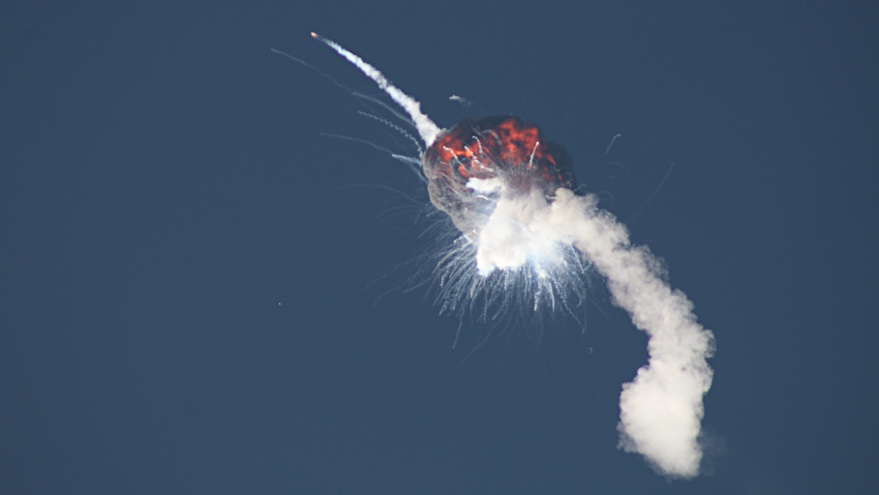WASHINGTON — Firefly Aerospace said Sept. 5 its first Alpha rocket failed when one of its first-stage engines shut down seconds after liftoff.
Firefly posted a video of the Sept. 2 launch from Vandenberg Space Force Base in California, which ended when the rocket tumbled out of control about two and a half minutes after liftoff. Space Launch Delta 30, which operates the range at Vandenberg, then destroyed the rocket using its flight termination system.
In a description accompanying the video, Firefly said that one of the four Reaver engines in the rocket’s first stage, designated engine 2, shut down 15 seconds into the flight. “It was an uneventful shutdown – the engine didn’t fail — the propellant main valves on the engine simply closed and thrust terminated from engine 2,” the company stated.
The rocket continued to ascend using the remaining three engines, but with reduced thrust. That would explain the underperformance apparent in the flight: according to the company’s press kit, the vehicle was supposed to reach Mach 1 67 seconds into the flight, but launch controllers did not report that the vehicle was supersonic until 2 minutes and 20 seconds after liftoff.
Firefly noted that “due to missing the thrust of 1 of 4 engines the climb rate was slow, and the vehicle was challenged to maintain control without the thrust vectoring of engine 2.” The vehicle was able to remain stable while going at subsonic speeds, but once it went transonic, “the three engine thrust vector control was insufficient and the vehicle tumbled out of control.”
The video showed that the rocket tumbled for about 10 seconds before the flight termination system destroyed it. The vehicle’s payload fairing broke off as the gyrations started but the rocket otherwise remained intact, its remaining engines still firing, until the flight termination system activated.
The company emphasized before the flight that the launch was primarily a test flight, carrying only a handful of payloads. “It’s a flight test, so getting data is success,” said Tom Markusic, chief executive of Firefly, in an interview the day before the launch. “The more data we get, the better.”
“Firefly has commenced a thorough anomaly investigation to gain understanding of why engine 2 shutdown early, and uncover any other relevant unexpected events during flight,” the company stated. “In collaboration with the FAA and our partners at Space Launch Delta 30, we will return to conduct the second Alpha flight as soon as possible.”
